Murders on the Yangtze River review
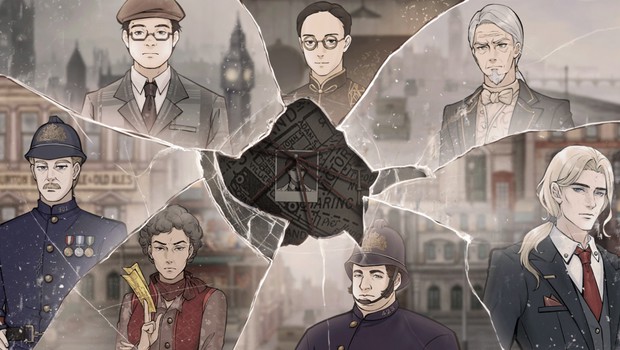
- 0 Comments
Phoenix Wright clone in 19th century China sails along on the strength of its fluid gameplay and beautifully authentic presentation
“The journey of a thousand miles begins with one step.”
An ancient Chinese proverb is an appropriate way to introduce Omegames Studio’s visual novel-styled courtroom drama Murders on the Yangtze River, a period piece primarily set during and around a steamboat trip down China’s shining crown jewel of a river in the late nineteenth century. Heavily inspired by Capcom’s seminal Ace Attorney series, this game carves its own identity without fully reinventing the wheel, presenting six chapters filled with intriguing murder cases through sharp writing, gorgeous presentation values, a memorable cast, and a satisfying lesson in culture that’s so entertaining it manages to be engaging and educational in equal measure.
Murders on the Yangtze River features multiple seemingly standalone cases, including one told via flashback, that ultimately turn out to be interconnected by a common thread running throughout to create an overarching mystery. Early on, however, these connections have yet to be established. Shen Chung-ping, our protagonist, is equal parts sophisticated gentleman and brilliant deductive mind – think a Chinese iteration of Professor Layton. He also has a strong sense of justice and a seemingly uncanny ability to be in just the right place at the right time when dastardly murders are committed. Together with his assistant (and tinkerer of all things mechanical) Afu, and a supporting cast including the young newspaper journalist Wen Ko-hsin, Shen embarks on a steamboat voyage down the titular river.
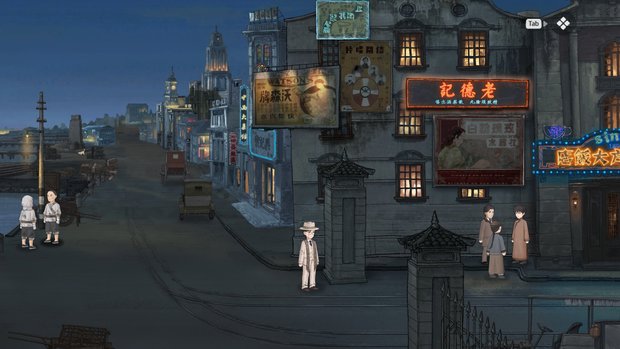
But this is no pleasure cruise; each stop along the way, apart from dishing up its own unique murder mystery to solve, is part of Shen following a lead in the case of his own brother Brian’s extremely bizarre and mysterious death in London several years earlier. Though it was dubbed a suicide by the local police, Shen is convinced there is far more to Brian’s case than meets the eye, particularly since a book has recently surfaced in which the author described the specifics of Brian’s case in detail…long before Brian’s life ever met an untimely end. As the game opens, Shen and Afu have arrived at their first destination, the home of said author where they hope to find incontrovertible proof of foul play involved in Brian’s death. Little do they know that the writer they’ve pinned all their hopes on is about to become a homicide victim himself, with none other than Shen the prime suspect.
Like a few later investigations (and the overarching central case), this first murder is a locked-room mystery, only this one has Shen, at first blush, being the only possible perpetrator. As the game unfolds, other cases include the likes of a family feud gone wrong and a grisly suicide in a metalworks factory. Murders on the Yangtze River is set in turn-of-the-twentieth-century China and incorporates many of the cultural and industrial revolutions of the time into its storytelling. As the narrative progresses, many relevant factoids are unlocked to assemble a type of in-game codex, covering such interesting topics as the country’s ongoing battle against a crippling opium addiction and the suffering of the victims who’ve fallen under its spell, the evolution of the justice system under English colonization, how innovations of the industrial revolution impacted the nation, and (naturally) the growing popularity of Western detective fiction, particularly the adventures of Sir Arthur Conan Doyle’s Sherlock Holmes. In fact, the cultural clash of old versus new and tradition versus Western thinking are ongoing themes that permeate the narrative throughout.
The game features a gorgeous hand-painted art style, and while the graphics are never flashy in terms of color or spectacle, there’s a quiet sort of dignity in their restrained palettes that imbues the game with that much more character. It's evident that accurately depicting an authentic Chinese setting was important to the development team in this area too. There are some picturesque moments – particularly the transitional shots that show the riverboat traveling on to its next location – that look as if they were taken straight from a bamboo wall scroll or rice paper screen and brought to life on your PC monitor. Similarly, a large amount of painstaking research is on display in everything from the period-appropriate fashion worn by the cast of characters (with several unlockable costumes for Shen and Afu to choose from), to the architecture and layout of places Shen visits, from small riverside fishing villages to larger cities, and even the accurate portrayal of police investigative techniques and the advent of scientific detection methods of the day.
Of course, we’re not here to simply marvel at the visual splendor, because murder cases aren’t going to solve themselves, so let’s get into the nitty-gritty of the gameplay. In general, the steamboat traveling from one location to the next splits the game into its separate chapters, with a few exceptions. When Shen arrives at a new location, players will guide him directly, traveling left or right via a straightforward side-scrolling perspective as he explores the area, using controls that are quite simple to come to grips with. Initiating conversation with locals or examining objects of interest is done with a simple mouse click, and hotspots are clearly labeled on-screen when he’s close enough to them. It’s nearly impossible to miss anything in this manner, so pixel hunting is kept to a minimum. Eventually, after some initial exploration, a murder will occur, and Shen & co. are put on the case.
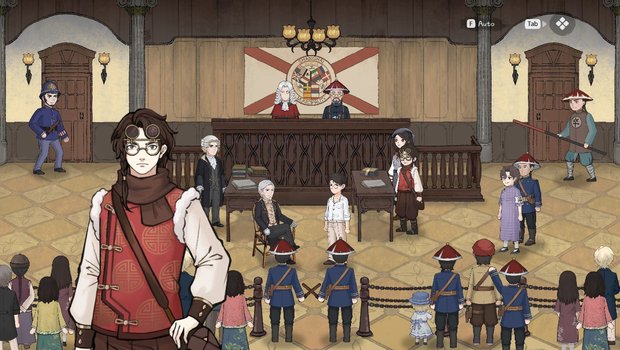
Gathering clues and evidence is done in the same way as area exploration, via side-scrolling movement, though it pays to be thorough and search every nook and cranny a second time, as new or different interactions may be possible at this stage. There is no ticking clock here, but the game’s narrative pretends there is, as the civil servants Shen encounters are eager to bring the potential murderer to justice. So, once you’ve found all relevant clues, the story will proceed to the courtroom section. Those who have experienced similar titles before will be very familiar with the way these play out. A prosecutor will present a plausible (though obviously false) explanation of events, along with a supposed culprit, all of which will be reasonable enough to be immediately accepted as fact by the usually overly naïve judge. This is where Shen must step in and save the day by disproving the argument step by step and, eventually, set things to rights by exposing the correct chain of events and the true evildoer.
While playing out much like a visual novel – with plenty of back-and-forth dialogue – all the genre staples are present and accounted for during these trial sections. Evidence must be presented to back up claims, witnesses may be questioned, and seemingly disparate dots await to be connected. Compared to the long-running Ace Attorney series, things are perhaps just a tad less chaotic here – there’s no competing finger-pointing while shouting “Objection!” for one thing – but the cases are nonetheless well-written, engaging, and will often keep you guessing until their conclusion. There were times when I felt that I was still a little bit in the dark and trying to put my thoughts in order by the time Shen would claim that an inaccuracy was ready to be exposed. This led to an instance or two where I found myself blindly guessing, but more often than not, Shen and I were in lockstep with thinking through each case’s plot twists as they occurred.
For those who often find themselves in dire straits in these kinds of games, fret not, for Murders on the Yangtze River is fairly forgiving when it comes to reaching the wrong conclusion. As is tradition, there is an on-screen life meter that depletes when incorrect answers are given, and if it reaches zero the case is lost. (Although here a lost case is actually treated as a sort of collectible alternate ending, as a graphic will detail your fate – apparently, the concept of a defense attorney was unheard of at the time, and their lives were considered tied to cases they lost, like being banished by the state.) But the game regularly auto-saves, in addition to letting you save anytime, so the most recent checkpoint is never too far back. Additionally, it turns out that only certain decisions will cause you to lose parts of your life meter, while others will simply prompt you to try again without any penalty.
Crucially, I’m happy to say that any blind guesses, rare as they were, were never down to a shoddy or confusing localization, as the game’s native Mandarin Chinese has been skillfully translated to English. While the exploration sections are presented via text, the original recordings have been preserved intact during the fully voiced courtroom scenes, and the well-cast performances fill the game’s remaining half with a ton of authenticity. This is rounded out by an extremely solid soundtrack made of compositions that lend the experience a great sense of place and time, combining traditional Eastern instrumentation and musical styles with the occasional more modern flair.
Final Verdict
In terms of courtroom visual novels with investigative adventuring interludes, Murders on the Yangtze River blends together bits and pieces of what we typically see in this type of game. But when it’s done as well as it is here, it’s not necessary to reinvent the wheel. It’s a familiar, tried-and-true formula set in a rarely visited time and place, making it feel like an authentic period piece to boot. With quality production values and solid writing to depict its characters, not to mention intriguing murder cases to puzzle through, this game makes for a satisfying bit of escapism in a faraway land and time that is a must-play for fans of the genre.
Hot take
Move over, Phoenix Wright! Murders on the Yangtze River takes us on a compelling trip to late-nineteenth-century China, where tradition and progress clash in almost every facet of life and an embattled detective chases down the ghosts of his brother’s enigmatic murder in this satisfying courtroom drama.
Pros
- Solid writing presents a slew of clever murder mysteries to solve
- Quality presentation brings the adventure to life via authentic visuals, music, and voice-overs
- Shen Chung-ping makes for a witty, charming and charismatic protagonist
- Fun historical romp through a rarely explored cultural setting
Cons
- Courtroom success may rely on a lucky guess or two
- Nothing novel added to the now-familiar gameplay formula
Pascal played Murders on the Yangtze River on PC using a review code provided by the game's publisher.


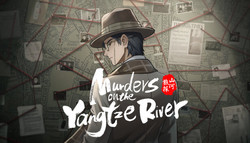





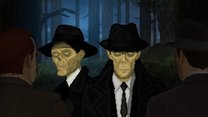

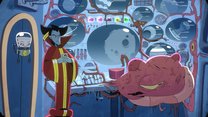
0 Comments
Want to join the discussion? Leave a comment as guest, sign in or register in our forums.
Leave a comment